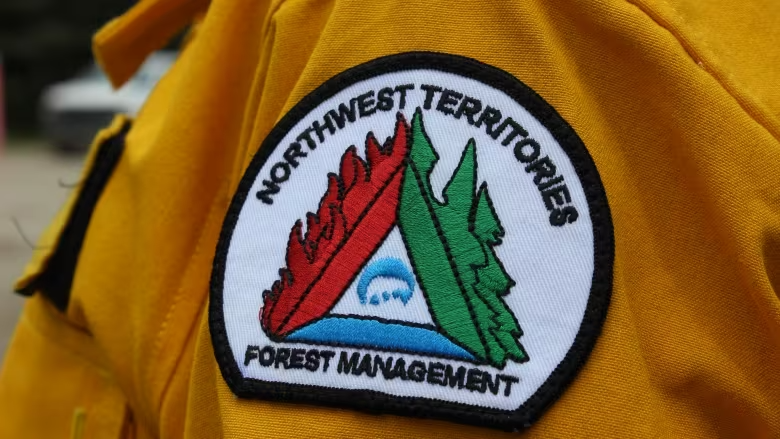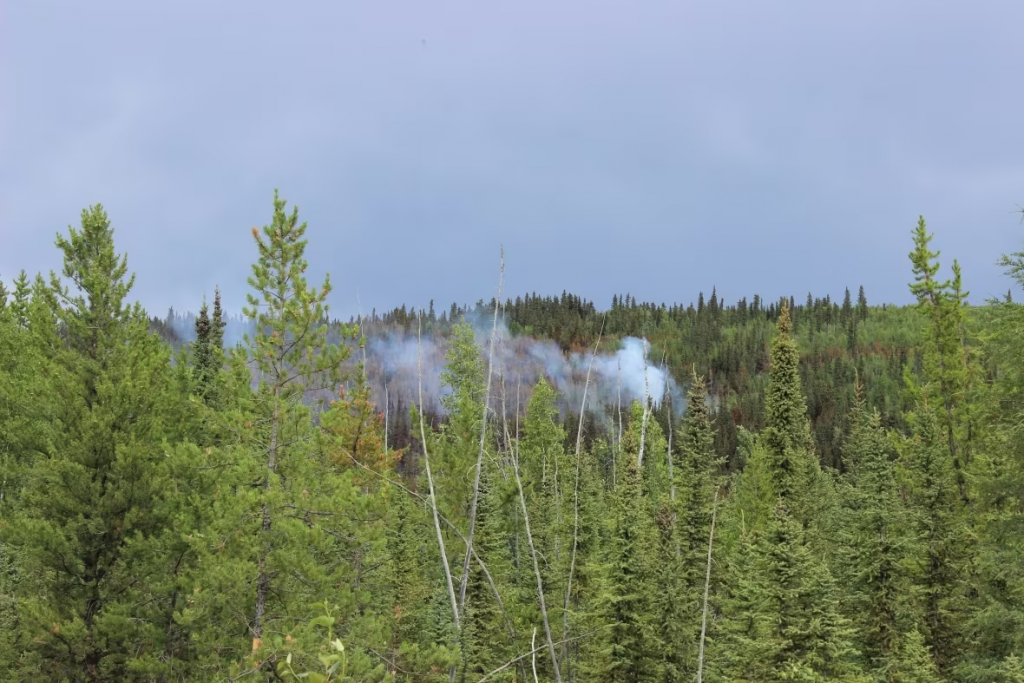Proposed N.W.T. Forest Act acknowledges Indigenous rights to harvest wood

Some public hearings scheduled this week cancelled because of South Slave wildfire
Public hearings about the N.W.T.’s proposed Forest Act have been postponed this week in the communities of Hay River, Enterprise and Fort Providence because of an out–of-control wildfire.
A territorial committee is still scheduled to visit the communities of Fort Liard and Fort Simpson later in the week to talk about Bill 74, which, if passed, would mean people with Aboriginal or treaty rights to harvest wood for personal use would no longer require a permit to exercise that right.
The bill was presented to a committee in late April where Deh Cho MLA Ron Bonnetrouge hinted at the significance of changing that rule in particular. “Many of our members have been charged in the past,” he said, referring to people harvesting wood as heating fuel or to build cabins.
The bill also deals with wildfire management, sustainable forest management, and the roles played by government departments, renewable resource councils, and forest management committees when it comes to the N.W.T.’s forests.
Bill 74 is a do-over of a controversial forestry bill that was tabled and withdrawn in 2019 after criticism from Dene Nation that it was an affront to treaty rights and Indigenous authority.
Four years later, the new draft legislation is the first the N.W.T. government developed with the intergovernmental council, a decision-making group born out of devolution that allows the public and Indigenous governments to collaborate on lands and resource management.
What is the Forest Act?
The Forest Act is a combination of the existing Forest Management Act and Forest Protection Act.
One of the key things it would do, according to a plain language summary, would be to make it legal for people with Aboriginal or treaty rights to harvest wood for personal use without permits. There would, however, be regulations for commercial activities that will be developed if the bill passes.

The Forest Act also allows the territorial government to take action to manage wildfire and to protect people, communities and other values at risk.
Those actions include provisions about the safe use of fire in the forest, lengthening the dates of the N.W.T.’s wildfire season when needed, and requiring industrial activities to have their own wildfire prevention plans.
“I don’t believe the Forest Act adds any additional responsibilities to communities,” said Mike Gravel, the territory’s director of forest management, when asked by Great Slave MLA Katrina Nokleby whether individual communities would be carrying more responsibility to fight wildfires.
The act also allows the territorial government to enter into wood harvesting agreements with other governments, corporations or organizations — opening the door for Indigenous governments to open community woodlots — and requires that a forest ecosystem management plan be in place before such harvesting can begin.
The intergovernmental council
The new bill required a lot of work, officials with the Department of Environment and Climate Change said during a Standing Committee on Economic Development and Environment meeting on April 28.
Gravel said the N.W.T. government and a technical working group met 15 times over the span of two years and went through eight versions of the bill before all parties — including five Indigenous governments — reached a consensus last November.

Erin Kelly, deputy minister of the N.W.T.’s Department of Environment and Climate Change, hailed the new process as a success during the same Standing Committee on Economic Development and Environment meeting.
“Significant time and effort has gone into this bill,” she said. “The Forest Act bill presented to the Legislative Assembly reflects the hard work of many people and organizations, and the consensus of all parties under the protocol.”
Peter Redvers, representing the Intergovernmental Council Secretariat at the meeting, also pointed out that not all Indigenous governments involved in the process were funded to do so.
“There is a pretty strong commitment on the part of those Indigenous governments so far involved to do this work regardless of the cost because of the implications are so important,” he said.
The committee is accepting written feedback about the bill before June 6, 2023.
Related stories from around the North:
Canada: Fewer wildfires than average in 2021 in Canada’s Northwest Territories, likely because of high water levels, CBC News
Russia: New NOAA report finds vast Siberian wildfires linked to Arctic warming, The Associated Press
Sweden: Swedish project uses satellites to help spot and monitor wildfires, Radio Sweden
United States: Wildfires in Anchorage? Climate change sparks disaster fears, The Associated Press



